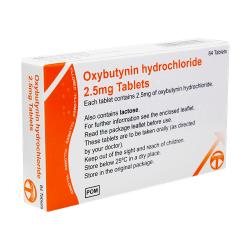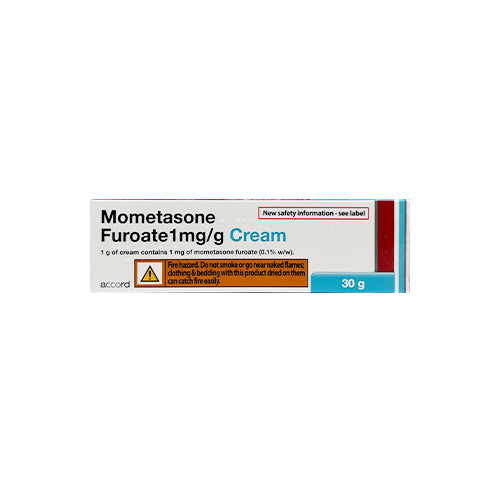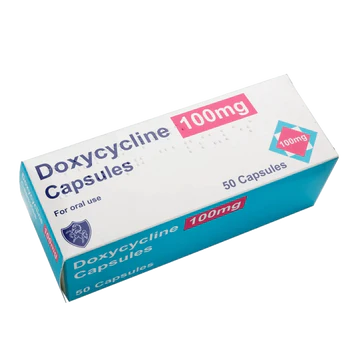What Is Flucloxacillin Used For?


Related products
What’s covered?
Acetaminophen is a component of the anti-inflammatory medication flucloxacillin. It is often prescribed to treat serious skin infections. For instance, some individuals have claimed that this medication effectively treats young children's ear infections. Flucloxacillin is available in liquid pill form (250 mg and 500 mg, respectively). It is given via injection at a medical facility.
What Is Flucloxacillin?
Flucloxacillin injections are used to treat bacterial infections and skin infections like cellulitis. Moreover, flucloxacillin is made to eradicate germs and prevent their spread. The antibiotics called penicillins include flucloxacillin. However, like the majority of anti-bacterial medications, flucloxacillin has little effect on viruses.
How Does Flucloxacillin Work?
Penicillinases, an enzyme, may attack antibiotics like penicillin if bacteria resist them, rendering them worthless for killing germs. The enzyme may be eliminated without harming cloxacillin.
What Is Flucloxacillin Used For?
Bacterial infections may be treated with flucloxacillin. It may be used for the following symptoms that affect the ears, nostrils, or throats:
-
abscess
-
coughing fit
-
sinusitis
-
tonsils
-
pharyngitis
-
quininesmedia
-
otitis externa
Furthermore, this medication may also be used for the following conditions:
-
osteomyelitis or bone infection
-
urethral infection
-
meningitis
-
septic infection
-
endocarditis
-
intestinal infection
Flucloxacillin During Pregnancy
Flucloxacillin has little to no impact when it comes to pregnancy. It is safe to use during pregnancy, but like with any new medicine, a doctor has to know whether a patient is expecting it before prescribing it. Flucloxacillin is helpful for pregnant women and to treat infections caused in infants. Of course, you should exercise caution when nursing before beginning the medication, as with other antibiotics. Nevertheless, pregnant women have been demonstrated to be unaffected by flucloxacillin.
Who Can and Cannot Take Flucloxacillin?
Most individuals have access to flucloxacillin. Anyone with a penicillin or cephalosporin medication allergy should avoid it. Some cloxacillin users are prone to bleeding from liver or skin irritation.
Flucloxacillin may sometimes be needed in lower dosages by certain patients. Inform your doctor that the patient has an underlying condition identified as allergies, is older than 60, and is experiencing liver problems.
For pregnant or breastfeeding women, flucloxacillin is safe and effective, and it is widely accessible. However, make sure to inform your healthcare provider or health professionals if you:
-
have liver or kidney problems
-
have recently had, or are due to have any vaccinations
-
have you ever had an allergic reaction to penicillin, flucloxacillin, or any other medicine?
Flucloxacillin side effects
Long-term antibiotic usage may cause other bacteria or organisms, which may not be antibiotic-sensitive, to overgrow or die. These may sometimes spread illnesses like thrushes. Any bacterial infections you get while taking the antibiotic should be mentioned to your doctor.
List a few flucloxacillin side effects that are well recognised. It does not imply that flucloxacillin is secure. The usage of medicine may result in a variety of issues.
-
Having flu or feeling unwell - Try to avoid eating hot or fatty food and stick to basic meals. Take tiny, regular sips of liquids when you are ill to prevent dehydration, such as water or squash.
-
Vomiting -To prevent dehydration, consume plenty of liquids like water or squash.
-
Indigestion and bloating - Try to avoid eating foods like lentils, peas, beans, and onions that make you far. Additionally, you may want to try eating more often, eating more slowly, and consuming smaller meals.
Rare flucloxacillin side effects
Flucloxacillin may, in very rare circumstances, cause a significant allergic response (anaphylaxis). Describe to the medical staff your symptoms of diarrhoea after flucloxacillin use.
Avoid using drugs like loperamide that treat diarrhoeal symptoms. Hepatitic illness, or a liver issue, might develop if therapy is not finished or within one to three months after diagnosis. The following symptoms may also arise:
-
an itchy, red, swollen, blistering, or peeling skin rash
-
sputtering
-
chest or throat tightness
-
difficulty speaking or breathing
-
throat, lips, tongue, or mouth begin to swell
You could be undergoing a severe allergic reaction and need emergency medical care.
Common side effects
If any of these negative effects annoy you or do not subside, continue taking the medication but tell your doctor or pharmacist first:
-
feeling sick (nausea) or feel unwell
-
diarrhoea
-
bloating and indigestion
Serious side effects
In case of emergency, contact the doctor immediately if:
-
You have severe diarrhoea that lasts more than four days or diarrhoea that includes blood or mucus and may be accompanied by muscular cramps.
-
The whites of your eyes or skin become yellow, and you produce pale poop with dark urine (this may be less noticeable if you have a black or brown complexion). This can indicate hepatic impairment issues.
-
You get bruises or skin discolouration.
-
You begin experiencing joint or muscular discomfort two days after taking the medication.
Some of these severe adverse effects might take up to two months to manifest after flucloxacillin treatment is complete.
Cautions with other medicines
Flucloxacillin's mechanism of action and the likelihood that you may have adverse effects can both be impacted by certain medications.
Before starting flucloxacillin, let your doctor know if you're taking any of the following medications:
-
methotrexate, an anti-inflammatory drug used to treat arthritis and other inflammatory diseases
-
Warfarin, a blood clot-prevention drug
-
various antibiotics
Inform your doctor if you've recently had an oral infection. If you use flucloxacillin, it can become less efficient.
Flucloxacillin and other medicines
Before beginning the course of therapy, inform your doctor or pharmacist. Before using it, if you're taking flucloxacillin, check with your doctor or healthcare professionals to be sure it's safe for you.
Flucloxacillin and contraceptives
Flucloxacillin has a negligible impact on ovarian pregnancy prevention. While using this antibiotic, nausea, and diarrhoea may lessen how effectively it prevents pregnancy.
When this occurs, follow any nausea, diarrhoea, or vomiting advice with your medications or packaging. Your doctor may advise taking ibuprofen as a pain reliever unless fluconazole has been given.
Flucloxacillin and anticoagulants
It this possible that flucloxacillin won't affect warfarin's anticlotting effects. When taking new medicine, your doctor could urge you to have further testing for your blood-clotting time (INR).
Flucloxacillin and painkillers
If you take flucloxacillin capsules, you can take painkillers as recommended.
What are Soft Tissue infections?
Numerous bacterial cell walls and other germs that penetrate the skin via wounds, burns, and irritated skin may result in skin and soft tissue infections. Skin and soft tissue infections are more likely to affect those with neuropathy (numbness), peripheral vascular disease (circulation problem), and illnesses of the lymphatic system.
What Antibiotics Called Penicillins?
Penicillins are broad-spectrum antibacterial medicines. They have saved millions of lives since their discovery and manufacturing. Moreover, penicillin-class drugs break bacterial cell walls indirectly. They operate directly on peptidoglycans, which are crucial for bacterial cell structure.
Peptidoglycans build a mesh-like structure surrounding bacterial plasma membranes, strengthening cell walls and preventing cerebrospinal fluid and particles from entering. Small holes form in a bacterium's cell walls as it grows. Newly generated peptidoglycans rebuild the walls.
Penicillins inhibit peptidoglycan-protein struts. It prevents bacterial cell wall synthesis from shutting. As the surrounding fluid's water content exceeds the bacterium's, water rushes through the perforations and bursts the cell.
Inform your doctor before using penicillin V if you are allergic to any medications, particularly cephalosporins like Ceclor, Ceftin, Duricef, Keflex, and others, or if you have any of the following:
-
asthma
-
kidney disease
-
blood infections or blood clotting disorder
-
a history of diarrhoea caused by taking antibiotics
-
a history of any type of allergy.
To take penicillin V safely if you have any of these problems, you may need a prescribed dose or undergo further testing.
What Are Bacterial Infections?
A bacteria is made up of a single complicated cell. It can endure on its own, within or outside of the body.
Most germs don't cause damage. In truth, our bodies contain a variety of bacteria, particularly in the stomach, where they aid digestion. Some germs, however, may lead to illnesses. Bacterial infections may damage the skin, gut, lungs, throat, and many other body parts. Many are minor, while a few are serious.
Whooping cough, strep throat, ear infections, and urinary tract infections are a few examples of bacterial illnesses (UTIs).
You should visit a doctor if you experience any of the following symptoms:
-
having trouble breathing
-
chronic cough or pus cough
-
unidentified skin redness or skin rash
-
feeling sick
-
vomiting a lot and having difficulties keeping water down
-
blood in urine, vomit, or poo (stool)
-
severe headache or empty stomach
-
a wound or burn with redness or pus
For a full range of blood tests and medications, visit our Welzo Online Pharmacy Page. For more details, click here.











 Rated Excellent by 26,523+ Reviews
Rated Excellent by 26,523+ Reviews